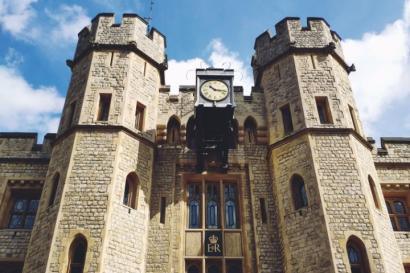Heading to England or the United Kingdom in summer? Dive into this guide on what to expect, from the weather to the crowds.
When Is Summer in England and the UK?
Situated in the Northern Hemisphere, the summer months in the United Kingdom (which includes England, Scotland, Wales, and Northern Ireland) stretch from late June until late September. Although, depending upon who you ask, you may get a different response. While the range above covers astronomical summer, others may refer to meteorological summer in the UK, which covers June, July, and August.
What Is England's Summer Weather Like?
Even on a single day in a single UK city during summer, you may experience multiple kinds of weather. Summer days in England proper are no different. What's more, the summer weather in England can vary quite a bit depending on precisely where in the country you find yourself. The north, where you might study at the University of Manchester, tends to be cooler than Bristol, London, and Oxford in the south. Meanwhile, the west tends to be the warmest, while the east has the most sun. Generally speaking, even in summer, it is typically mild with occasional warm spells.
The summer weather in England is a key topic of conversation among the locals. Checking the forecast is wise - but it's always important to take it with a pinch of salt. Any given day's weather can, after all, be full of the unexpected in England. Nevertheless, here's what you might expect to experience during a summer in England:
Temperatures
In the south of England, you can expect average temperatures in the high teens to low twenties Celsius (60-70 Fahrenheit) during the summer months (June to August). In the north, temperatures tend to be slightly cooler, with average highs in the mid to high teens Celsius (around 60 Fahrenheit).
England’s hottest day on record was 19 July 2022 at Heathrow Airport. While the English complain most of the year that it’s cold or miserable, in summer, they complain that they ‘like it hot, but not this hot.’ Be aware that most homes do not have air conditioning and are mainly designed to trap heat, so make plans to be outside in the shade on the hottest days!
Rain
Although summer is usually the driest season in England, rain can still be quite common, particularly in the northwest. It is always a good idea to pack a waterproof jacket and umbrella, just in case. Summer showers and strong downpours are quite common, catching everyone out and drenching their shorts, t-shirts, and flipflops.
The upside of the rain is it gives the English people some weather to complain about – the rainier the better for the stories.
Daylight
When the clocks change in March, the English get very excited. It signals the end of the long, dark winter. By the time mid-summer arrives, England has long daylight hours, with the sun rising before 5am and setting after 9pm in some parts of the country.
People gather in parks and beer gardens, by rivers and lakes and enjoy being outside. But always pack a sweater – just because it’s light for a long time does not mean it’s warm into the evening – or even all day!
Crowds
Summer is peak tourist season in England – and Great Britain as a whole welcomes over 40 million tourists every year. Add to overseas visitors the British tourists who explore the island during school holidays, from July to September, and you should expect popular tourist destinations to be busy.
Fast track tickets are a good idea, and using Google Map’s busy area information can help you to plan your trips. You might try getting out early while everyone else has breakfast, so you can see places before the crowds arrive. Taking an early lunch means you’ll find a table more easily, and when you’ve finished the crowds arrive for lunch and you can explore the attraction with fewer crowds.
Festivals
With the longer days, summer is a popular time for music, wellbeing and food and drink festivals in England, so check out what’s going on in the area you’re visiting. Glastonbury is probably the biggest and most famous festival, but tickets sell out minutes after coming online. The experience is similar with the big music festivals – Reading and Leeds, Isle of Wight and Latitude – but if you’re lucky and know when sales open, you might just get a ticket.
Most towns and villages have free summer fetes, and free city events, like Notting Hill Carnival in London, South Tyneside Summer Festival, Hull’s Freedom Festival, and Bristol International Balloon Fiesta. But just heading to the beach, the countryside, or local parks is just as delightful.















